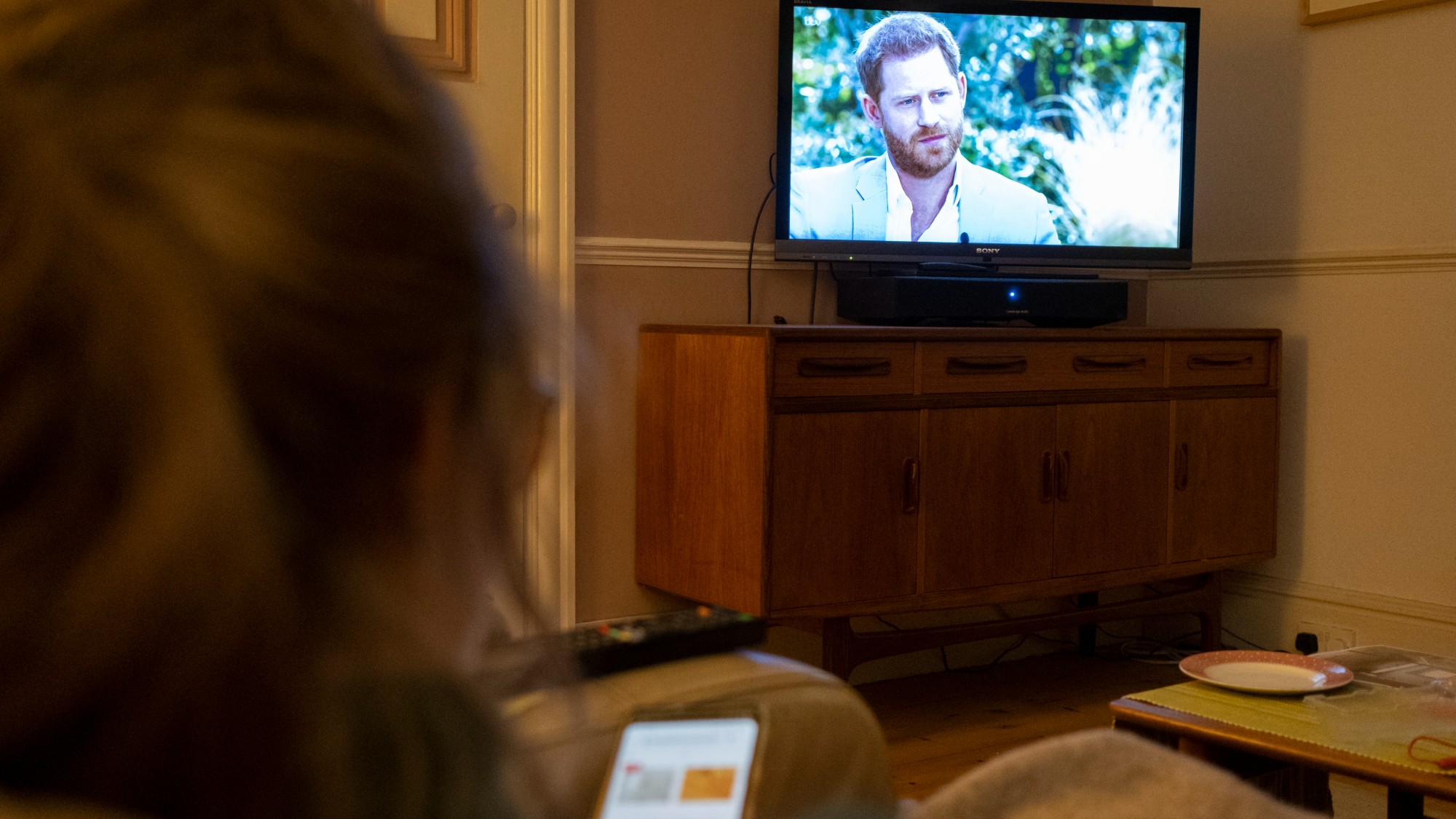Netflix and the second screen phenomenon
Programme makers claim they're being asked to cater for distracted viewers

A free daily email with the biggest news stories of the day – and the best features from TheWeek.com
You are now subscribed
Your newsletter sign-up was successful
Television producers know you're not watching TV in the same way you did before.
If you've ever half-watched a series or film on Netflix while scrolling Instagram it "may surprise you" to learn that the streaming giant knows you "engage in this obscene behaviour" and "actually wants you to carry on", said The Guardian.
Viewers are often barely paying attention
"Second screening" is the practice of using a secondary device, usually a smartphone, while "simultaneously engaging" with primary content on another screen, such as a TV, said Verdict.
The practice is "over a decade old", said YouGov, which found in 2023 that across 17 markets, a majority of viewers said they look at their mobile devices while watching TV "very or fairly" often. India led the way with 60%, in Australia 57% of viewers said they second-screened, followed by Americans and Britons, both on 55%.
The Week
Escape your echo chamber. Get the facts behind the news, plus analysis from multiple perspectives.

Sign up for The Week's Free Newsletters
From our morning news briefing to a weekly Good News Newsletter, get the best of The Week delivered directly to your inbox.
From our morning news briefing to a weekly Good News Newsletter, get the best of The Week delivered directly to your inbox.
Netflix audiences "watch from their homes, on couches, in beds, on public transportation, and on toilets", said Nplusone, and "often they aren't even watching". So, mindful that their viewers are "often barely paying attention" to the action on screen, the streaming company has taken a novel turn, according to reports.
Several screenwriters who've worked for Netflix told the outlet that a "common note" from company executives is "have this character announce what they're doing so that viewers who have this programme on in the background can follow along".
According to The Guardian, Netflix has a "history" of telling show-runners that scenes aren't "second screen enough", reasoning that if a viewer's "primary screen" is their phone, they "shouldn't be so challenged" by a Netflix show on their second screen that they "switch the show off".
Much more exposition
Shows are "intentionally scripted" for "distracted viewers", said Daphne Rena Idiz, Postdoctoral fellow, Department of Arts, Culture and Media, University of Toronto, on The Conversation.
A free daily email with the biggest news stories of the day – and the best features from TheWeek.com
An unnamed programme maker told her that they'd been told by Netflix "what you need to know about your audience" is that they'll watch the show "while doing something else and talking to their friends". You need to "say much more than you would normally say", so the audience understands "what's going on, even if they’re not looking at the screen".
Another industry figure said a Netflix boss would say "in this show, we have to make sure that the points come through, even though kids are watching TikTok while they watch it".
All of this means, said Idiz, "overly expository dialogue, repeating plot points" and including "lots of voice-overs" to narrate the action and "help the distracted viewer follow along".
A question of balance
Might these reports "catastrophise" a "niche problem"? Three writers who have written for Netflix told The Guardian they'd "never received" any prompts or guidance for distracted viewers.
But several series on Netflix seem to be "designed specifically" for the second screen viewer, said Verdict, because they're "interesting enough to warrant being left on in the background", but "formulaic and simplistic enough" to allow viewers to remain focused on their smartphones.
So it's feared that the second screen audience may "stifle creativity", as streamers decide to "produce background noise" instead of "compelling storytelling".
In the end, it may be a question of "balance", said The Guardian, because as long as there are shows that can be "consumed casually" and shows that "demand 100% of our attention", everything "may be all right".
Streamers might need to consider fully how to make casual viewing that's "also good viewing", because the two "needn't be mutually exclusive".
Chas Newkey-Burden has been part of The Week Digital team for more than a decade and a journalist for 25 years, starting out on the irreverent football weekly 90 Minutes, before moving to lifestyle magazines Loaded and Attitude. He was a columnist for The Big Issue and landed a world exclusive with David Beckham that became the weekly magazine’s bestselling issue. He now writes regularly for The Guardian, The Telegraph, The Independent, Metro, FourFourTwo and the i new site. He is also the author of a number of non-fiction books.